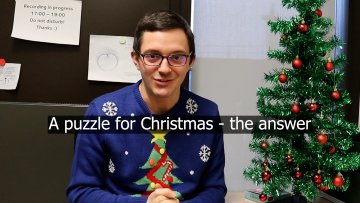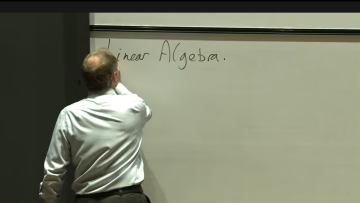Here's the answer to yesterday's Christmas puzzle. If you missed it, you can find it here although James Munro recaps it in the answer video below.
Here's a Christmas puzzle for mathematicians and non-mathematicians alike. Especially non-mathematicians.
Three kings each arrive with a gift; one has brought gold, one has brought frankincense, and one has brought myrrh (and no-one has brought more than one gift).
The first king, Balthasar, says “I have brought gold.”
The second king, Caspar, says “I have not brought gold.”
Over the past four years we have been making student lectures available to anyone who wants to take a peek at how we teach. You can now watch 85 lectures covering all four years of our undergraduate courses and including some whole courses. Geometry, calculus, number theory, topology, probability and much, much more: take your pick.
Andy Wathen is our guy at the whiteboard in our latest addition, the first lecture in the first year Linear Algebra course (video below). Many more to follow over the next few weeks.




